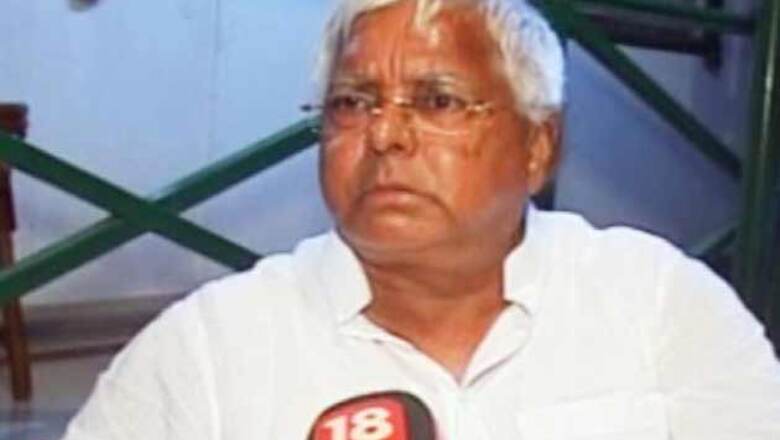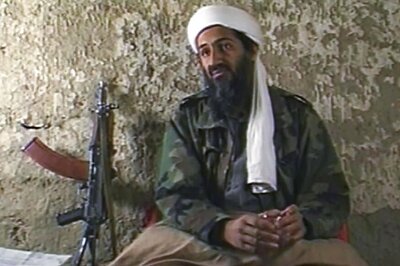
views
Patna: Refusing to buy Nitish Kumar's argument absolving himself of the Godhra tragedy, Rashtriya Janata Dal (RJD) chief Lalu Prasad on Wednesday accused him of closing the Railways' probe in the train burning incident to suit the interest of Gujarat Chief Minister Narendra Modi. "Nitish as Railway Minister had closed inquiry into the Sabarmati train burning incident to suit interest of Gujarat Chief Minister Narendra Modi. This had triggered riots," Prasad, who succeeded Kumar as Railway Minister in UPA-I, told reporters in Patna.
"Rail se Godhra ka pura khel suru huan (the entire game of Godhra begun from Railway)," Prasad said, refusing to give clean chit to Kumar in the episode. "He (Kumar) cannot absolve himself from the Godhra incident merely by saying that Railway looks into safety and not law and order problem," Prasad said.
"Had Nitish got a sincere probe done into the Godhra train burning incident, the matter would not have escalated to this level," he said. "Since the probe was closed by Nitish Kumar, I had to reopen it by ordering a comprehensive inquiry into Sabarmati Express incident when I became Railway minister," Prasad said.
"He (Nitish) is party to Gujarat riots by keeping silent over train burning incident," Prasad, an arch-rival of the Bihar Chief Minister, said. "2002 (when Gujarat riots took place) was the real test of his (Nitish) secularism in which he miserably failed," the RJD chief said, adding, "had he been secular in true sense he should have quit NDA government after 2002 tragedy."
Commenting at the infighting between the JD(U) and the BJP, Prasad said, "The NDA government in Bihar has been reduced to coma and its heart could stop beating anytime." He also took potshots at Kumar for praising BJP leader LK Advani, saying how could the man responsible for Babri mosque demolition come in for praise. Prasad said there was no chance for emergence of Third Front in 2014 general elections.
On whether Rahul Gandhi should be declared the Prime Ministerial candidate of Congress in the coming Parliamentary polls, he said it was for the Congress to decide. He, however, said though secular parties might contest separately in the general elections, they would come together after the elections.



















Comments
0 comment